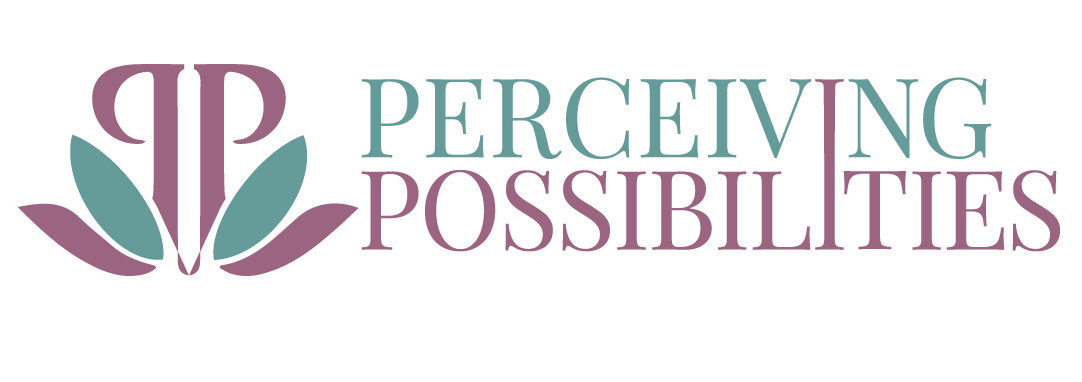The subject of life-work* balance came up in a conversation recently. Instantly, one of the women said, “I hate that phrase; I wish people would stop using it. It’s IMPOSSIBLE to have balance.” I saw a couple of other heads start to nod (and one eye roll).
I get it. You may even be thinking the same thing.
I once thought it was impossible as well. I spent far too many years with no balance in my life, which took a toll. A BIG toll. I was leading a large department with multiple sub-departments and raising a family, but I wasn’t taking care of myself in a way that helped create balance. In fact, I was so off balance that I crumbled when life handed me a series of challenging events.
Like me, you might recognize when you feel stress and know how to relieve it effectively. However, If you are only applying short-term stress relieving mechanisms, you may not be creating the balance you need. It was only through my crisis that I discovered the actual keys to creating a feeling of balance.
Leaders carry many responsibilities; one that can often be neglected is taking care of themselves. If you aren’t taking the steps needed to create balance for yourself, it’s only a matter of time before it catches up with you. If you are not taking care of yourself, you cannot properly care for your employees, which is another critical leadership responsibility.
So, while having life-work balance may seem like an impossible dream, there are five things you can do to help make that dream a reality.
Give yourself permission to put your life ahead of your work.
It’s not always easy (or possible) to put life first, but by accepting that it’s OK to do so, you open yourself up to seeing more ways you can balance the two. We get messages all the time that tell us to be productive. These messages can come from many places, such as the media, your family, and your working environment. This can lead to the feeling that you are not as valuable if you aren’t productive. Believe me, I know that feeling all too well. I spent many years in a working environment where if you weren’t showing that you were “productive” in every moment of the workday, you were called out for it and chastised. When I finally accepted that this message was wrong and that it was OK for me to put my life first, it was like taking off a sleeping mask and seeing the world again.
Give yourself permission by simply repeating to yourself, “it’s OK to put my life first.” Yes, even when it doesn’t feel like you can. Now, that’s not permission to blow off your leadership responsibilities; it’s just a reminder that sometimes the pressure you put on yourself around work is only coming from you. I know for some, that can be hard to accept, it was for me. Becoming aware of your thoughts and how you think about your life-work balance is critical to achieving balance.
Learn to be in the present moment
Much of what causes us to feel off balance comes from focusing too much on the past or the future. When you can focus on the here and now, you give yourself the gift of balance. When your mind wanders to the future or past, it usually isn’t to think happy and calming thoughts. Frequently those thoughts produce worry, guilt, fear, etc.; in other words, thoughts that tend to make stress increase, not decrease. This means that even if you are engaged in an activity to recharge yourself , if your thoughts aren’t where you are, you reduce your ability to feel balanced.
Think about it this way. You take a day off from work. You schedule a massage so that you can relax, but you spend the entire massage thinking about work and what is waiting for you when you get back tomorrow. How relaxed and balanced do you think you will feel after that massage? Now, think about that same massage, but this time you keep your mind focused on the spa music or the gentle, relaxing pressure of the massage, things that are going on in the present moment. Ahhhhhhh, that’s much more relaxing.
To find balance, you must train your mind to stay present and notice when your thoughts pull you out of the present moment. Practicing mindfulness trains you to stay in the present moment and objectively observe your thoughts, giving you a better ability to direct your attention where you want it, in the present.
Create systems and structures
James Clear, the author of Atomic Habits, says, “You do not rise to the level of your goals, you fall to the level of your systems.” Life isn’t easy-going or balanced without systems and structures to support you. This is something I resisted for YEARS! I like to think of myself as a free spirit. I’m an easy-going, go-with-the-flow person, and structures were the enemy. Ha! How wrong I was. The systems and structures that I put into my life and work gave me the free time to find balance.
For a long time, I didn’t keep a prioritized To-Do list; I just got stuff done as it came up and wrote down what wasn’t finished at the end of the day. I didn’t see the need for a priority list if I tackled everything immediately. But the problem with that is everything had the same priority. As a leader, it isn’t realistic to think everything should get the same attention. When I switched to a prioritized To-Do list with my 3 Must Do items each day AND blocked time to get them done, I got more done and had less stress. In other words, I felt more balanced.
Before creating this structure for myself, I would ruminate at home at the end of the day. I would fret about what was left unfinished, wondering if I should have stayed later and worked longer to get it done today. (Sound familiar?) After implementing my improved list, I found part of the balance I was looking for . . .peace of mind on my off time because I knew I had gotten the most critical work done.
There are many areas where you can create systems. It takes time, but the results are undeniable.
Set boundaries
Yep, you probably have boundary issues if you have trouble finding balance. Setting boundaries is easier said than done, but it is crucial to achieving balance. Often, when I talk with people about their lack of life-work balance, it comes down to not setting boundaries with others AND with themselves. Oh yeah. Boundaries are not just about what you will and won’t tolerate from others, it’s also about how you treat yourself.
Many of us grow up not being taught that it’s ok to set boundaries, let alone how to set them. This can make it difficult as an adult to recognize when you need a boundary. It’s also important to recognize that you might not always have enough privilege in a situation to set all the boundaries you would like. For example, you may have a job that requires you to be available during non-work hours, but that doesn’t mean you cannot find a boundary to help compensate.
I worked for many years where I needed to be on call for my staff in my off-hours. So, the boundary I set was in how information was communicated to me during those times:
- If they needed my help immediately for a time-sensitive situation, call me. (I know that may sound obvious, but it’s important not to assume anything when setting boundaries.)
- If you need my attention quickly, but it’s not an immediate need, text me.
- If it can wait until the next time I’m working, send an email.
By setting these clear communication boundaries I was able to mostly ignore my emails when I was off. I could relax more easily in my off-time because I had set a boundary around my time. Additionally, my team knew the best channel to reach me based on their need and they got to use their judgment. It was a win-win. I got to increase my feeling of balance and my staff had a sense of autonomy.
Practice self-compassion
This practice goes together with staying present and there are so many reasons to learn to practice self-compassion, but that’s for another time. I want to focus on how having self-compassion brings greater balance to your life. If you are not familiar with the concept of self-compassion, it can be boiled down to this . . .treating yourself the way you would treat a dear friend.
Self-compassion is not something that comes naturally to many of us, and it is essential for creating life-work balance.
Earlier I said how easy-going I am, but it wasn’t always that way. I used to be very unforgiving, especially of myself. My parents used to say that I was much harder on myself than they ever were (and they were right). If you’ve ever repeatedly kicked yourself for making a mistake, you know where I’m coming from.
Practicing self-compassion is like always knowing there is a warm hug waiting to make things better. When you practice self-compassion, you are better able to move through difficult situations that can keep you from being present. It also allows you to start breaking free from the balance killer known as perfectionism. When we strive for perfection, we set ourselves up for disappointment. For example, if you are always looking for the perfect balance in your life, you will never see the balance that already exists.
Finding balance is important in your life and in your leadership. As a leader, your staff looks to you for what is acceptable behavior in the workplace. Everything you do sends signals to your team, whether you mean to or not. When you create life-work balance for yourself, you implicitly tell your team that it’s OK to have balance. (I hope you take this a step further and explicitly tell them that you want them to have balance.) When the entire team feels safe and supported in their desire for life-work balance, they will be more engaged and less likely to leave.
What are some ways you create balance in your life?
*I say life-work instead of work-life as a reminder that life comes first.






